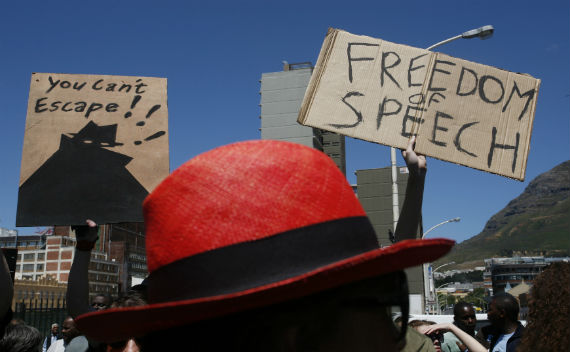Protection of State Information Bill a Blemish on South Africa
By experts and staff
- Published
By
- John CampbellRalph Bunche Senior Fellow for Africa Policy Studies

South Africa’s African National Congress (ANC), which dominates parliament, appears to be moving inexorably toward passing a government-sponsored bill that would criminalize the possession and disclosure of classified information. Popularly called the “secrecy bill,” under its provisions, should a journalist uncover classified information about government corruption and fail to hand it over to the police, he or she could be jailed. The bill is opposed by civil liberties watchdogs. In an eloquent November 29 New York Times op-ed, Nic Dawes, Judith February, and Zackie Achmat argue that the proposed legislation violates the spirit of South Africa’s constitution, which contains among the most widespread protections for individual liberties in the world.
Newspapers gleefully report regularly on the foibles and professional and personal follies of the country’s political leaders. The press regularly unearths kickbacks and other corrupt practices. Though there is a vibrant parliamentary opposition, the Democratic Alliance, the press has become a powerful force for the accountability of office holders to the public. Stung, some in the ANC are also urging that a parliamentary commission be established to “regulate” the print media in conjunction with the secrecy bill.
But, as is so often the case in South Africa, there is also a racial dimension: much of the press is white-owned while the ANC is predominately black. And post-apartheid efforts to address poverty and racial economic inequality are largely stalled. For some radicals, South Africa’s free, largely white-owned press is a force for the unacceptable status quo.
The secrecy bill is still subject to amendment as part of the parliamentary process, and the keepers of the “liberation flame” are doing their best to modify it. In particular, the authors of the Times’ op-ed are seeking provisions that would allow the publication of state secrets in “the public interest,” that is, cases of corruption, official lies or threats to public safety. I wish them success.